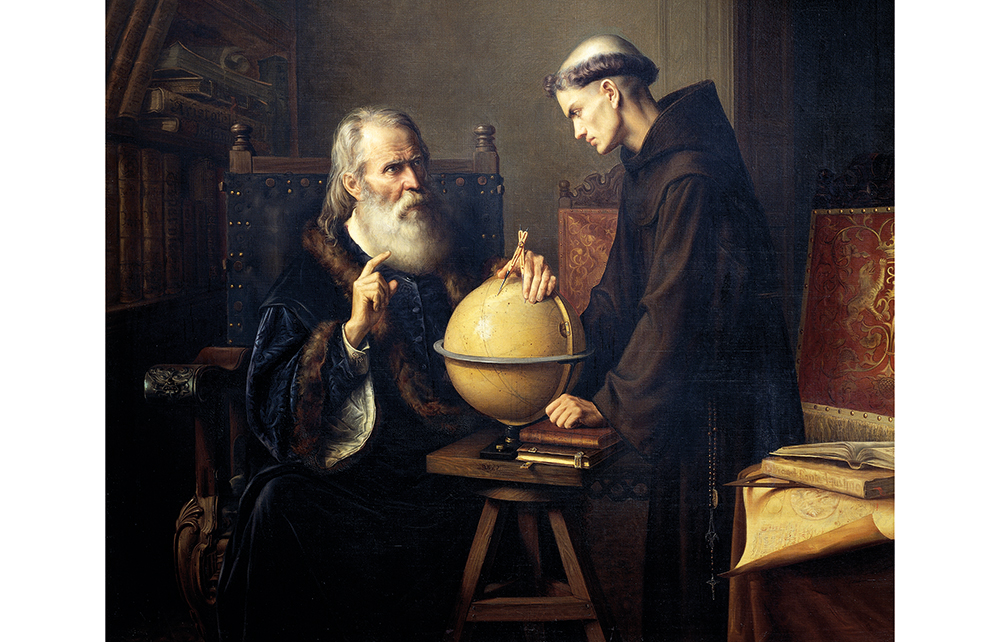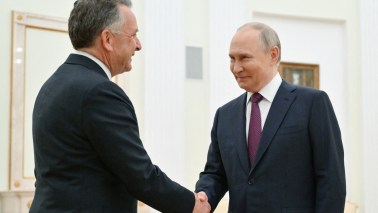According to the census, there are more Christians in the UK than there are atheists and agnostics – yet the churches are empty. These Christians, it seems, don’t take their faith too seriously. Nor, I fear, does Nicholas Spencer, who has written a big book arguing that science and religion are fundamentally compatible. He’s wrong; but, surprisingly, he is more wrong about religion than he is about science.
The great assault on Christian faith came not from science, not from a denial of creation, but from history
Let me start by laying my cards on the table. I’m the son of a missionary. My father’s parents were atheists and scientists. He, in adolescent rebellion, became a Christian; I, ditto, became an atheist. Because I was raised abroad I barely knew my paternal grandparents, but I inherited from them one thing: a copy of Fred Hoyle’s The Nature of the Universe (1950), in which Hoyle attacked the ‘big bang’ theory that the universe had originated in a moment of creation and argued that it had always been exactly what it is now. Hoyle was convinced there was a fundamental conflict between science and religion, and I was thrilled to find a door which opened into a world without faith. Unfortunately, Hoyle’s science was wrong: the universe really did originate in a big bang. Indeed, Hoyle had a remarkable propensity for being wrong. He believed life on Earth was, and continues to be, seeded from outer space. But he was perfectly right that religion and science are at odds.
Spencer doesn’t agree. We ought to accept, he argues, that Hoyle’s steady state theory was perfectly compatible with monotheism, and that the big bang is no proof of the existence of a creator God. When religion and science seem to be at odds it is because one side or the other is claiming too much and conceding too little.







Comments
Join the debate for just £1 a month
Be part of the conversation with other Spectator readers by getting your first three months for £3.
UNLOCK ACCESS Just £1 a monthAlready a subscriber? Log in